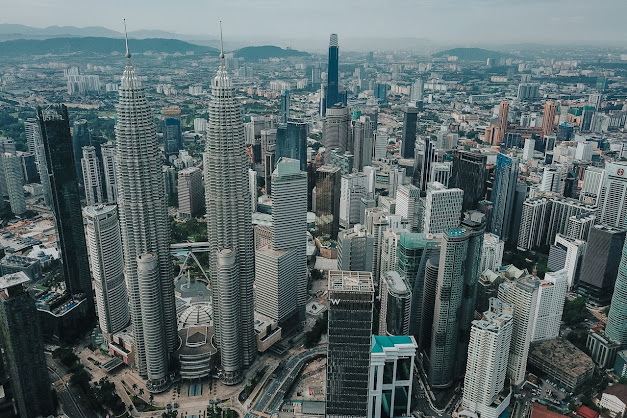Malaysia will no longer have a monopoly on 5G and a second network will be allowed
 |
| This is a panoramic view of the Kuala Lumpur city skyline, featuring the iconic Petronas Twin Towers, a landmark of Malaysia |
On May 3, 2023, the government of Malaysia revealed that it would be implementing a dual network model for the rollout of its 5G network in the coming year.
This decision was made in response to widespread concerns about the pricing and competitiveness of a single state-run network, and it marks the latest effort by Prime Minister Anwar Ibrahim's administration to break up monopolies and promote competition.
However, this move could potentially cause tensions with Western nations that were advocating for Malaysia to adhere to its original plan.
Previously, Malaysia had announced a plan for a state-owned agency, Digital Nasional Berhad (DNB), to own the entire 5G spectrum, with various carriers utilizing the infrastructure to provide mobile services.
Nonetheless, Malaysia has now decided to permit a second entity after DNB achieves 80% coverage of populated areas. According to Communications Minister Fahmi Fadzil,
The Malaysian government's decision to introduce a dual network model for its 5G rollout aims to promote competition and end monopoly, taking into account the sustainability of the telecommunications industry ecosystem.
The move comes in response to concerns raised by industry players over pricing and monopolization.
This move is not unprecedented, as other countries have also opted for a multi-provider model for their 5G networks.
For instance, South Korea has three major 5G providers, while the United States has multiple providers, including Verizon, AT&T, and T-Mobile. By introducing a second entity after DNB achieves 80% coverage of populated areas, Malaysia hopes to create a level playing field for all carriers and improve pricing transparency.
This decision aligns with the global trend of promoting competition in the telecommunications industry, as seen in other countries.
DNB has provided mobile coverage to 57.8% of populated areas, and it is projected to expand its coverage to 80% by the year-end. This announcement by the government confirmed Reuters' report last month about the plan to introduce a second 5G network beginning in January 2024.
The initial plan of single ownership was met with industry concern over pricing, transparency, and monopolization. In March of last year, the previous government had declined the proposal of major carriers for introducing a second 5G provider.
After taking office in November, Prime Minister Anwar announced a review of the plan, stating that it was not transparently formulated by the previous administration.
However, DNB disagrees with the idea of a second 5G network, stating that a single network would lead to cost reduction, improved efficiency, and faster infrastructure development. The impact of introducing a second network on DNB's existing partnerships with Ericsson and other mobile operators is currently unknown.



Post a Comment